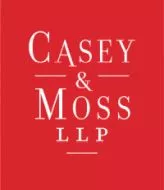When I was in my third year of law school, 1L and 2L students constantly asked me two things:
- "Do you have an outline I could use?" and...
- "What courses should I take next year?"
The first one was easy (yes, I do). The second one? Much harder. My advice usually depended on which classes I did well in, or which professors I liked, not necessarily which courses would be the most useful later.
Now, I have come to realize how valuable it is to take courses that actually relate to your future practice. There are the obvious ones (like Wills & Estates or Trusts), and the not so obvious.
With a 2L summer and the first weeks of articling behind me, here are the courses that have been most helpful for my work in estate litigation so far:
1. Civil Procedure
This is where you learn the nuts and bolts of litigation: the differences between a motion and an application, counting days for court deadlines, different avenues to get a case dismissed, all that jazz. This course is most likely mandatory for all law students, but this is just an extra reminder to really pay attention to the content if you want to pursue litigation.
Taking this course is not a guarantee that you'll become a pro at the Rules of Civil Procedure. In fact, one of my favourite professors told me that he's been reading the same Rules (or similar iterations of it) for decades, and always finds new things in the same old places.
The takeaway here is that procedure can matter just as much as substance for your case, and a basic understanding of procedure can put you miles ahead.
2. Real Estate Law
Estates often consist of real property, and Estate Lit could involve fighting about that property, who owns it, how much of it, who is entitled to which parts, etc. You may deal with disputes regarding cottages, condos, farmland, family homes, and there are distinct legal considerations for each type of real property.
Learning how to read and decipher an Agreement of Purchase and Sale (APS), a parcel register and even a Trust Ledger in law school means one less thing to panic-Google when you end up having to do it in the course of your file. This could come up in a myriad of ways, such as checking a property's ownership or reviewing accounts.
3. Negotiation
Most estate disputes settle, whether in the regular course of the file or at mediation. A negotiation course helps you understand your own client and the opposing party's interests versus positions. Through practice, this course may also equip you to think outside of the box and prepare creative offers that actually get results.
Learning to identify your client's BATNA (best alternative to a negotiated agreement) and separating their "must haves" versus the "nice to have" results will help you guide clients toward decisions that are cost effective, efficient, and satisfactory.
4. Tax Law
I took a tax course, and yes it was difficult, but the gain was worth the pain (at least that's what I'm telling myself to cope with having to suffer through the General Anti-avoidance Rule...).
But in truth, every estate issue has tax implications: there's the obvious estate administration tax, but there's also underlying tax consequences to each piece of advice you give clients on their estate problems.
Even a basic understanding of tax law can improve client service as it enables us to spot which tax issues are purely within our expertise, and which require tax lawyers or accountants.
No Singular Course Prepares You
No law school course will prepare you for everything. There's no class on gathering facts and filling in gaps of information, or parsing through hundreds of pages of medical records just hoping you'll find something relevant to your argument, but the ones mentioned gave me a solid foundation to try my best at work.
The content of this article is intended to provide a general guide to the subject matter. Specialist advice should be sought about your specific circumstances.


